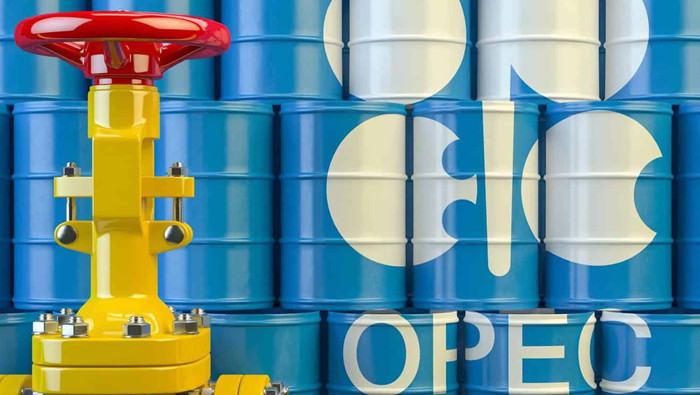
Vienna: Oil prices are having a dream run as traders bet on vaccine rollouts boosting fuel demand as economies reopen.
Benchmark crude contract Brent North Sea is trading at a more-than-a- year high of $61 (€53.1) a barrel, having soared over 60% since the emergence of successful coronavirus vaccines in November. West Texas Intermediate (WTI) futures, the US benchmark, has risen to $58 a barrel.
The increase in oil prices, however, could give Saudi Arabia, the de facto leader of the Organisation of the Petroleum Exporting Countries (Opec), a new headache; some of its fellow oil producers, who have been surprisingly complying with pledged output cuts under a deal to stabilise oil markets, might now be tempted to go rogue.
" Opec + producers are anxious to ramp up production and higher oil prices will ultimately lead to massive cheating on production commitments," Edward Moya, senior market analyst at OANDA trading group, told DW."For Opec+ members, it is all about market share and if demand improves along with prices, we will see compliance go out the window."
Poor compliance has beset Opec+ — an alliance between the oil group members and a handful of Russia-led producers — since its inception in 2016. Several of the alliance members, including Russia, Iraq and Nigeria, have been notorious for producing more than their pledged quotas, much to the annoyance of Riyadh, left to do much of the heavy lifting.
But when last year's COVID-19 travel restrictions and sweeping lockdowns battered oil demand and caused oil prices to crash, even trading below $0 a barrel in the US in April amid a severe shortage of storage space, oil producers didn't have much incentive to overproduce.
Opec+ has claimed that there was nearly absolute compliance with oil production cuts between May and December under its current deal, with even the so-called laggards receiving an impressive report card. Saudi Arabia has been strictly ensuring compliance, even calling on those breaching targets to compensate in the following months.
The alliance agreed to the biggest coordinated cuts on record — 9.7 million barrels of oil per day (bpd), or 10 per cent of total global supply — in April last year as the COVID-19 pandemic brought the global economy to a screeching halt. That figure has been gradually decreased to 7.2 million bpd amid recovering fuel demand.
The grouping has committed in December to gradually bring back no more than 500,000 bpd on a monthly basis. The increase in production was put on hold for February and March as many countries imposed new coronavirus lockdowns. Saudi Arabia volunteered to cut its production by an extra 1 million bpd in the two months as part of the deal.
With oil prices breaching the $60 a barrel mark and crude stockpiles falling, Russia and some other Opec+ members would call for a faster ramping up of production than was agreed in December, reigniting tensions with Saudi Arabia. The group meets on March 4 to discuss the production target for April.
"I do think that this meeting is going to be more difficult for Riyadh to argue for restraint, even though from a balanced perspective they [Opec +] should restrain. So, make no mistake about that," Eugene Lindell from Vienna-based JBC Energy told DW. "The demand has not come back. So, the price is in a way artificially high. It's gotten ahead of itself. It's pricing more on future expectations than on current fundamentals."